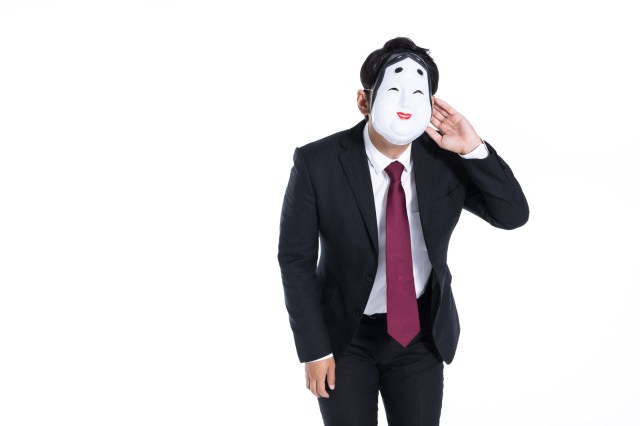Twitter user has something to say about the language they don’t teach you in textbooks.
If you’ve ever studied a foreign language and then visited the country where it’s actually spoken, you may have been surprised by the difference between the expressions taught in the classroom and the way people really speak in the real world.
It’s a topic that Twitter user @phie_hardison brought up online recently, with a tweet labelled “Learning Japanese gotta be rough”. Included with the tweet is the message “Japanese you learn at Japanese school VS Japanese actually spoken by Japanese people“, and the video demonstration shows the huge difference that exists between the two.
Take a look at the video below:
Learning Japanese gotta be rough
— ハーディソン (@phie_hardison) January 23, 2020
日本語学校で教わる日本語 VS 実際に日本人が言う日本語 pic.twitter.com/ygnZ0d6W0v
In the clip, @phie_hardison can be heard listing a number of simple “Japanese words you learn in school“, clearly pronouncing them in the same way students are taught to during the first stages of learning Japanese.
There’s “Ohayou gozaimasu” (“Good morning”); “Konnichi wa” (“Good afternoon’); “Arigatou gozaimasu” (“Thank you”); “Yoroshiku Onegaishimasu” (“Please”); and “Otsukaresama Desu” (“Thanks for the hard work”).
You’ll often hear these words being used in everyday situations, particularly in workplaces around Japan. However, in casual environments, or as people become more comfortable with their colleagues and their positions within the work hierarchy, these phrases can become less enunciated over time, leaving us with “how Japanese people actually say them“.
As demonstrated by @phie_hardison, that means the above list of formal phrases now becomes: “ozaasu“; “iwaa“; “azaassu“; “yoroshiaasu“, “are-esu“.
This shortening of the language into barely comprehendible vowels and consonants can leave some Japanese learners scratching their heads in confusion. Even worse, if a person picks up the language without any formal learning, they may think that “azaassu” is the real word for “thank you” in Japanese.
▼ “azaassu?”
Twitter users were quick to jump on board with @phie_hardison’s observation, leaving comments like:
“Lmfao this is so true”
“Although Japanese language teachers teach correct Japanese, it doesn’t mean Japanese people actually observe it.”
“It’s funny how the language isn’t always as important as the tone and situation.”
“It’s similar in English with ‘whassup’ instead of “how are you?'”
“It just goes to show how important it is to live or at least visit the country to learn the language.”
“I think it’s better to say the words properly as it’s more polite.”
It’s true that in formal and unfamiliar situations it’s generally better to err on the side of caution and use textbook phrases rather than abbreviated slang to avoid rubbing people up the wrong way, no matter what country you’re in.
However, if you want to level-up your communication skills with friends in casual situations, this real-world Japanese lesson is one that can be a handy addition to your language tool belt. Along with the Language Learning with Netflix extension and the seven mistakes that foreigners make when speaking Japanese and how to fix them!
Source: Twitter/@phie_hardison via Hachima Kikou
Featured image: Twitter/@phie_hardison
Insert image: Pakutaso
● Want to hear about SoraNews24’s latest articles as soon as they’re published? Follow us on Facebook and Twitter!


 Japanese workers reveal the 8 most astonishing things new employees do in the workplace
Japanese workers reveal the 8 most astonishing things new employees do in the workplace Three-way “yankee” street brawl breaks out following Coming-of-Age Ceremony in Japan【Video】
Three-way “yankee” street brawl breaks out following Coming-of-Age Ceremony in Japan【Video】 Greta Thunberg lookalike advertises pachinko slot machine parlor in Japan【Video】
Greta Thunberg lookalike advertises pachinko slot machine parlor in Japan【Video】 A cute robot will make you a perfect ice cream cone for 100 yen in Japan【Video】
A cute robot will make you a perfect ice cream cone for 100 yen in Japan【Video】 Harrowing video sees reckless drivers ignore pedestrian crossing in Japan【Video】
Harrowing video sees reckless drivers ignore pedestrian crossing in Japan【Video】 Foreigner’s request for help in Tokyo makes us sad for the state of society
Foreigner’s request for help in Tokyo makes us sad for the state of society Japanese city loses residents’ personal data, which was on paper being transported on a windy day
Japanese city loses residents’ personal data, which was on paper being transported on a windy day Seaside scenery, history, and so many desserts on Yokohama’s Akai Kutsu【Japan Loop Buses】
Seaside scenery, history, and so many desserts on Yokohama’s Akai Kutsu【Japan Loop Buses】 Ghibli Park now selling “Grilled Frogs” from food cart in Valley of Witches
Ghibli Park now selling “Grilled Frogs” from food cart in Valley of Witches We tried Korea’s way-too-big King Tonkatsu Burger at Lotteria 【Taste Test】
We tried Korea’s way-too-big King Tonkatsu Burger at Lotteria 【Taste Test】 Red light district sushi restaurant in Tokyo shows us just how wrong we were about it
Red light district sushi restaurant in Tokyo shows us just how wrong we were about it You don’t know Pokémon: 14 little-known facts about your favorite monster collecting series
You don’t know Pokémon: 14 little-known facts about your favorite monster collecting series Sandwiches fit for a sumo served up in Osaka【Taste Test】
Sandwiches fit for a sumo served up in Osaka【Taste Test】 Should you add tartar sauce to Japanese curry rice? CoCo Ichi makes diners an unusual offer
Should you add tartar sauce to Japanese curry rice? CoCo Ichi makes diners an unusual offer Hey, Japanese taxi driver! Take us to your favorite restaurant in Tsuruga City!
Hey, Japanese taxi driver! Take us to your favorite restaurant in Tsuruga City! McDonald’s new Happy Meals offer up cute and practical Sanrio lifestyle goods
McDonald’s new Happy Meals offer up cute and practical Sanrio lifestyle goods Japanese ramen restaurants under pressure from new yen banknotes
Japanese ramen restaurants under pressure from new yen banknotes French Fries Bread in Tokyo’s Shibuya becomes a hit on social media
French Fries Bread in Tokyo’s Shibuya becomes a hit on social media Studio Ghibli releases new action figures featuring Nausicaä of the Valley of the Wind characters
Studio Ghibli releases new action figures featuring Nausicaä of the Valley of the Wind characters New private rooms on Tokaido Shinkansen change the way we travel from Tokyo to Kyoto
New private rooms on Tokaido Shinkansen change the way we travel from Tokyo to Kyoto Tokyo Tsukiji fish market site to be redeveloped with 50,000-seat stadium, hotel, shopping center
Tokyo Tsukiji fish market site to be redeveloped with 50,000-seat stadium, hotel, shopping center Beautiful Ghibli sealing wax kits let you create accessories and elegant letter decorations【Pics】
Beautiful Ghibli sealing wax kits let you create accessories and elegant letter decorations【Pics】 Studio Ghibli releases Kiki’s Delivery Service chocolate cake pouches in Japan
Studio Ghibli releases Kiki’s Delivery Service chocolate cake pouches in Japan New definition of “Japanese whiskey” goes into effect to prevent fakes from fooling overseas buyers
New definition of “Japanese whiskey” goes into effect to prevent fakes from fooling overseas buyers Our Japanese reporter visits Costco in the U.S., finds super American and very Japanese things
Our Japanese reporter visits Costco in the U.S., finds super American and very Japanese things All-you-can-drink Starbucks and amazing views part of Tokyo’s new 170 meter-high sky lounge
All-you-can-drink Starbucks and amazing views part of Tokyo’s new 170 meter-high sky lounge More foreign tourists than ever before in history visited Japan last month
More foreign tourists than ever before in history visited Japan last month New Pokémon cakes let you eat your way through Pikachu and all the Eevee evolutions
New Pokémon cakes let you eat your way through Pikachu and all the Eevee evolutions Disney princesses get official manga makeovers for Manga Princess Cafe opening in Tokyo
Disney princesses get official manga makeovers for Manga Princess Cafe opening in Tokyo Sales of Japan’s most convenient train ticket/shopping payment cards suspended indefinitely
Sales of Japan’s most convenient train ticket/shopping payment cards suspended indefinitely Sold-out Studio Ghibli desktop humidifiers are back so Totoro can help you through the dry season
Sold-out Studio Ghibli desktop humidifiers are back so Totoro can help you through the dry season Japanese government to make first change to romanization spelling rules since the 1950s
Japanese government to make first change to romanization spelling rules since the 1950s Ghibli founders Toshio Suzuki and Hayao Miyazaki contribute to Japanese whisky Totoro label design
Ghibli founders Toshio Suzuki and Hayao Miyazaki contribute to Japanese whisky Totoro label design Doraemon found buried at sea as scene from 1993 anime becomes real life【Photos】
Doraemon found buried at sea as scene from 1993 anime becomes real life【Photos】 Tokyo’s most famous Starbucks is closed
Tokyo’s most famous Starbucks is closed One Piece characters’ nationalities revealed, but fans have mixed opinions
One Piece characters’ nationalities revealed, but fans have mixed opinions We asked a Uniqlo employee what four things we should buy and their suggestions didn’t disappoint
We asked a Uniqlo employee what four things we should buy and their suggestions didn’t disappoint Princesses, fruits, and blacksmiths: Study reveals the 30 most unusual family names in Japan
Princesses, fruits, and blacksmiths: Study reveals the 30 most unusual family names in Japan What Japanese women really think about the gender gap in Japan【Video】
What Japanese women really think about the gender gap in Japan【Video】 Dam management finds laughably clever way to deter nighttime thrill-seekers in Japan【Video】
Dam management finds laughably clever way to deter nighttime thrill-seekers in Japan【Video】 Japan fans call Rugby World Cup player Luke Thompson “kawaii” for the way he speaks Japanese
Japan fans call Rugby World Cup player Luke Thompson “kawaii” for the way he speaks Japanese How should a guy say “I” in Japanese? Japanese women give their opinions【Survey】
How should a guy say “I” in Japanese? Japanese women give their opinions【Survey】 Foreign English teachers in Japan pick their favorite Japanese-language phrases【Survey】
Foreign English teachers in Japan pick their favorite Japanese-language phrases【Survey】 Pigeon cuts in line, casually boards train in Japan【Video】
Pigeon cuts in line, casually boards train in Japan【Video】 Be Mr. Sato’s online friend, and he might take you to dinner, like he did with these foreign fans
Be Mr. Sato’s online friend, and he might take you to dinner, like he did with these foreign fans Cat says good morning to its owner in Japanese【Videos】
Cat says good morning to its owner in Japanese【Videos】 How do you say ‘Google it, you trash’ in British English? Answer surprises many in Japan
How do you say ‘Google it, you trash’ in British English? Answer surprises many in Japan What’s wrong with English education in Japan? Pull up a chair…
What’s wrong with English education in Japan? Pull up a chair… Japan’s second-largest convenience store chain changes service policy for sake of foreign workers
Japan’s second-largest convenience store chain changes service policy for sake of foreign workers Words they don’t teach you in Japanese class: How to say “straw man” in Japanese
Words they don’t teach you in Japanese class: How to say “straw man” in Japanese “Rabbits are liquid?” Escape artist bunny breaks free of its cage in Japan【Video】
“Rabbits are liquid?” Escape artist bunny breaks free of its cage in Japan【Video】 5 things about Japanese customer service that surprise foreign visitors
5 things about Japanese customer service that surprise foreign visitors
Leave a Reply